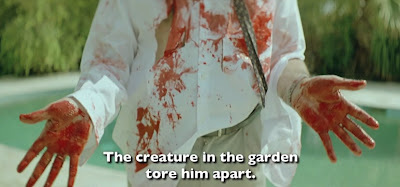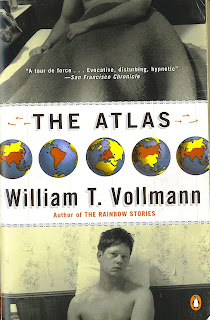"Stories We Tell", directed by Sarah Polley (Canadian, 2012).
Sometimes digging up secrets doesn't get us closer to an answer, but lets us ask more difficult questions. Sarah Polley's self-examining documentary, "Stories We Tell" (named best feature-length documentary by the Toronto Film Critics Association), grapples with that all-too-human drive to attach narrative to personal experience, and tests how that desire can distort or even completely obscure what (may have) actually happened. Polley's directorial story focuses on her parents -- her mother, Diane, died when she was very young, leaving her father, Michael, to raise her on his own. We hear from siblings, friends, colleagues riff on Diane and Michael's relationship, who lived the quasi-glamorous lifestyle of stage actors in Toronto. Polley's questioning is at once general but leading, simple but suggestive, and the audience gradually finds where the story of Michael and Diane fractures -- when Polley learns that she may be the product of her mother's affair.
So from the very beginning, the documentary-expectation of objective distance is completely collapsed -- the stories are purposefully subjective, with familial interviews supplying a network of gossip, opinion, hearsay and hindsight that only Polley provides with editorial structure. "Stories" is documentary film laid bare, at least insofar as it can still have intelligible form, but it's remarkable as a performance of simultaneous storytelling and documenting. Alongside talking-head interviews, Polley integrates imagined home movies, shot on Super8 with actors that could pass for time-travelers, mimicking sweetly the nostalgic framing of romantic memories. This trick is a really slick one, the movies as found-footage are so off-handedly believable, they seem to verify the spoken narratives, but in fact are just fantasies -- Polley can dress and direct her actors as she likes to remember them, as she tries to form the story of her own conception. The entire film is kept on track through shots of Polley directing Michael in a sound booth, as he reads from his memoir, giving loose structure to the cut-away interviews and reenactments.
Once the story turns into present-day discussions of her parents' legacy, the focus is on Polley herself, as she realizes that she was conceived by her mother's extramarital affair. This is probably the shakiest part of the documentary, but also its most compelling -- we hear from her biological father and see reenactments of his earliest meetings with Polley, which took place while "Stories" was already in production. Once Polley's paternity becomes the main topic of conversation, the documentary-laid-bare format stretches open a bit more, as sibling-interviewees begin asking Polley questions and her (now figuratively if not biologically) father claims her documentary is a gestalt therapy attempt to cope with the news.
This shift towards Polley and away from the ephemeral relationship between Michael and Diane is dramatic but a bit compromising, as the portrait of her mother gets lost in the fray and the film's story is forcibly reoriented as Polley digests the information. But it is perfectly performative of what "Stories" drives home -- that lives are constantly being retold and adjusted, and no matter how much we learn, we can never be certain. Even paternity tests are only 99.9% sure.






